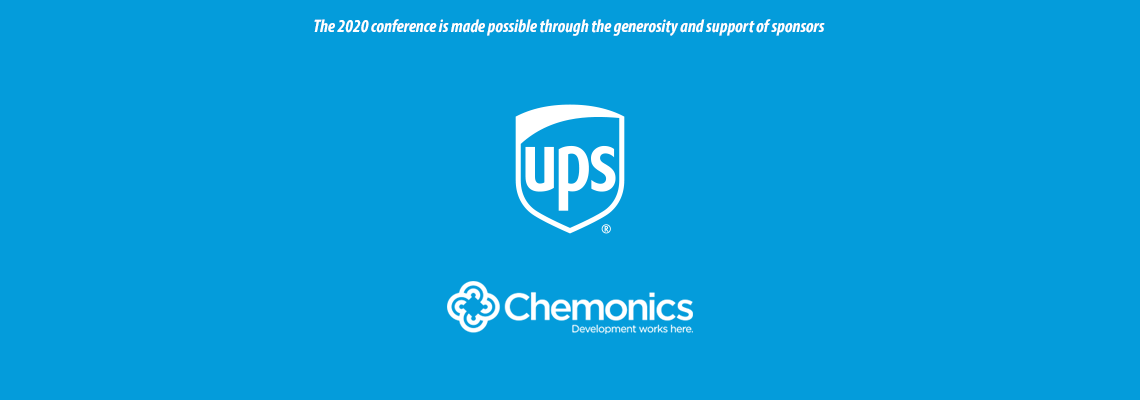Panel Sessions & Panelists
For More Information On Each Panelist Visit The Speaker Bio Page
*Recordings of each Panel session have been made public to visitors and can be accessed Here
Plenary Panel 1: Strengthening Health Systems and Health Supply Chains
COVID-19 is the most recent and impactful global pandemic, but unlikely to be the last major health emergency with a major impact. Even during normal times, health systems and health supply chains in many parts of the world face challenges, which are further exacerbated and prolonged due to emergencies. During a health emergency, supply chains are as much a part of the response as other parts of the healthcare system. It is challenging to design and run health systems and health supply chains focused on efficiency during “normal” times while establishing their agility, flexibility, and responsiveness considering potential disruptions and emergencies. This panel will discuss lessons learned from health emergencies in identifying the vulnerabilities in health systems and health supply chains, as well as best practices and opportunities to prepare for the future, not only in terms of the ability to respond during crisis but to provide better care during normal times.
- Samira Asma, Assistant Director-General for Data, Analytics and Delivery for Impact - WHO
- Suvi Rautio, Deputy Director - UNICEF Supply Division
- Jenny Parker, Vice President, Infectious Disease Programs - CDC
- Prashant Yadav, Senior Fellow - Center for Global Development & Affiliate Professor, INSEAD Moderator
- Pinar Keskinocak, Professor, School of Industrial & Systems Engineering - Georgia Tech; Co-founder & Director, Center for Health & Humanitarian Systems (CHHS) Moderator
Plenary Panel 2: Disasters & Development - Market Systems Analysis
Before, during and after a crisis, communities are buying and selling products and services. Markets are places where buyers and sellers come together to trade, so communities and markets have a continuous relationship.
Market Based Assistance considers existing markets – through assessments, analysis and programming – across all phases of a humanitarian emergency response and across all technical sectors [1]. When providing humanitarian assistance, organisations should take into consideration existing behaviours and practices in order to avoid disrupting local markets. To date, there has been a mixed approach to this requirement, with varying degrees of success. Effective, coordinated market analysis is therefore key to responding appropriately to crises.
Panel experts from the aid, academic and private sector will share their perspectives on how to improve mechanisms to analyse and assess markets before, during and after a crisis. Discussion will consider Cash Transfer Programming (CTP) as a rapidly expanding modality for the delivery of humanitarian assistance [2] and its impact on health service delivery in humanitarian contexts.
[1] Market-Based Programming: What's it all about? Oxfam, February 2020
[2] The ODI High Level Panel Report 2015 on Humanitarian Cash Transfers ‘...urge[s] the humanitarian community to give more aid as cash, and to make cash central to future emergency response planning
- Helene Juillard, Director - Key Aid Consulting
- Claire Louise Travers, Global Impact Lead - Field Ready, Co-Founder - Local Procurement Learning Partnership, Independent Consultant
- Abdoulaye Hamidou, West and Central Africa Capacity Building Lead, Global Market Thematic Lead - The Cash Learning Partnership (CaLP)
- Alexandre Gachoud, Cash & Markets Specialist - International Committee of the Red Cross
- Stephen A. Vosti, PhD, Adjunct Professor - UC Davis, Dept. of Agricultural and Resource Economics
- George Fenton, Chairman & CEO - Humanitarian Logistics Association Moderator
Plenary Panel 3: Protecting Supply Chain Essential Workers
The safety of essential workers is critical for effective response to the COVID-19 pandemic – from frontline health workers to backend supply chain workers. This panel will discuss various public and private efforts to provide guidance and equipment that keep drivers, warehouse workers, healthcare providers and other essential employees safe during an evolving outbreak. They will discuss the challenges in obtaining the equipment and establishing the protocols to keep essential workers safe to date and explore how we can continue to balance safety and productivity going forward.
- Ruth Bechtel, Mozambique Country Director - VillageReach
- Kathy Fulton, Executive Director - American Logistics Aid Network (ALAN)
- Dominique Zwinkels, Executive Manager - People that Deliver
- Lloyd Mbasela, Executive Director - Industrial Training Centre, Zambia
- Jarrod Goentzel, PhD, Director, Research Scientist and Lecturer - MIT Humanitarian Supply Chain Lab, Moderator
Starts In...
About the Conference Series
The Health & Humanitarian Conference series is organized each year by the Center for Health and Humanitarian Systems (CHHS) at Georgia Tech in partnership with INSEAD, MIT, and Northeastern University, with generous support from corporate and other organizational sponsors.
Stay Connected on:
Contact
For general information about the conference, including registration, please use our contact form or the below:
- humlogconf (@) gatech.edu
- 755 Ferst Drive, Atlanta, GA 30332







